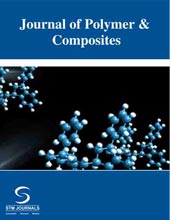Open Access

Giphin George
Abstract
Battery thermal management system (BTMS) is crucial for ensuring the safety and performance of battery packs in electric vehicles. Liquid cooling is one of the most effective methods for BTMS, but the choice of coolant, fluid path and its flow rate can affect the heat transfer efficiency and the pressure drop. In this paper, a numerical simulation of a liquid-cooled BTMS using three designs with water as a coolant has been carried out. The Reynolds number of the fluid was kept as 800 and 2400 at the inlet of the cooling plate channel with heat flux boundary condition of 500 W/m2 on the top face. It was supposed that a battery pack is run for 1000 seconds and the heat generated by the battery is transferred to the coolant through convection. Finally, a comparison of the temperature distribution of coolant, temperature of the cooling plate was analyzed. As a result, it was found that increasing the Reynold’s Number cooling plate temperature and the coolant temperature difference. The fluid path and the outlets also affect the rate of heat transfer along the cooling plate.
Keywords: Thermal management, Liquid cooling, Design Optimization, Micro channel
This article belongs to Special Issue Conference International Conference on Innovative Concepts in Mechanical Engineering (ICICME – 2023)

Browse Figures
References
1.
Panchal S, Khasow R, Dincer I, Agelin-Chaab M, Fraser R, Fowler M. Thermal design and simulation of mini-channel cold plate for water cooled large sized prismatic lithium-ion battery. Applied Thermal Engineering. 2017 Jul 25;122:80–90.
2.
Isaacson MJ, Hollandsworth RP, Giampaoli PJ, Linkowsky FA, Salim A, Teofilo VL. Advanced lithium ion battery charger. In Fifteenth Annual Battery Conference on Applications and Advances (Cat. No. 00TH8490) 2000 Jan 11 (pp. 193–198). IEEE.
3.
McDowall J, Biensan P, Broussely M. Industrial lithium ion battery safety-What are the tradeoffs?. In INTELEC 07-29th International Telecommunications Energy Conference 2007 Sep 30 (pp. 701–707). IEEE.
4.
Murugan, M., Saravanan, A., Elumalai, P.V., Murali, G., Dhineshbabu, N.R., Kumar, P. and Afzal, A., Thermal management system of lithium-ion battery packs for electric vehicles: An insight based on bibliometric study. Journal of Energy Storage, 52(2022) :p.104723.
5.
Xing Y, Miao Q, Tsui KL, Pecht M. Prognostics and health monitoring for lithium-ion battery. In Proceedings of 2011 IEEE International Conference on Intelligence and Security Informatics 2011 Jul 10 (pp. 242–247). IEEE.
6.
Feng X, Fang M, He X, Ouyang M, Lu L, Wang H, Zhang M. Thermal runaway features of large format prismatic lithium ion battery using extended volume accelerating rate calorimetry. Journal of power sources. 2014 Jun 1;255:294–301.
7.
Lu L, Han X, Li J, Hua J, Ouyang M. A review on the key issues for lithium-ion battery management in electric vehicles. Journal of power sources. 2013 Mar 15;226:272–88.
8.
Panchal S, Dincer I, Agelin-Chaab M, Fraser R, Fowler M. Transient electrochemical heat transfer modeling and experimental validation of a large sized LiFePO4/graphite battery. International Journal of Heat and Mass Transfer. 2017 Jun 1;109:1239–51.
9.
PSN, M.V. and Murali, G., Simulation on the thermal management of electrical vehicle battery pack with different cooling methods. In E3S Web of Conferences.2023. Vol. 391, p. 01096. EDP Sciences.
10.
Teng H, Ma Y, Yeow K, Thelliez M. An analysis of a lithium-ion battery system with indirect air cooling and warm-up. SAE International Journal of Passenger Cars-Mechanical Systems. 2011 Sep 13;4(2011-01-2249):1343–57.
11.
He F, Ma L. Thermal management in hybrid power systems using cylindrical and prismatic battery cells. Heat Transfer Engineering. 2016 Apr 12;37(6):581–90.
12.
Bayraktar I. Computational simulation methods for vehicle thermal management. Applied Thermal Engineering. 2012 Apr 1;36:325–9.
13.
Saw LH, Ye Y, Tay AA, Chong WT, Kuan SH, Yew MC. Computational fluid dynamic and thermal analysis of Lithium-ion battery pack with air cooling. Applied energy. 2016 Sep 1;177:783–92.
14.
Ling Z, Wang F, Fang X, Gao X, Zhang Z. A hybrid thermal management system for lithium ion batteries combining phase change materials with forced-air cooling. Applied energy. 2015 Jun 15;148:403–9.
15.
Ling Z, Chen J, Fang X, Zhang Z, Xu T, Gao X, Wang S. Experimental and numerical investigation of the application of phase change materials in a simulative power batteries thermal management system. Applied energy. 2014 May 15;121:104–13.
16.
Somasundaram K, Birgersson E, Mujumdar AS. Thermal–electrochemical model for passive thermal management of a spiral-wound lithium-ion battery. Journal of Power Sources. 2012 Apr 1;203:84–96.
17.
Mahamud R, Park C. Reciprocating air flow for Li-ion battery thermal management to improve temperature uniformity. Journal of Power Sources. 2011 Jul 1;196(13):5685–96.
18.
Park S, Jung D. Battery cell arrangement and heat transfer fluid effects on the parasitic power consumption and the cell temperature distribution in a hybrid electric vehicle. Journal of Power Sources. 2013 Apr 1;227:191–8.
19.
Yang Y, Hu X, Qing D, Chen F. Arrhenius equation-based cell-health assessment: Application to thermal energy management design of a HEV NiMH battery pack. Energies. 2013 May;6(5):2709–25.
20.
Jarrett A, Kim IY. Influence of operating conditions on the optimum design of electric vehicle battery cooling plates. Journal of Power sources. 2014 Jan 1;245:644–55.
21.
Rao Z, Wang S. A review of power battery thermal energy management. Renewable and Sustainable Energy Reviews. 2011 Dec 1;15(9):4554–71.
22.
Wu MS, Liu KH, Wang YY, Wan CC. Heat dissipation design for lithium-ion batteries. Journal of power sources. 2002 Jun 15;109(1):160–6.
23.
Lemmon EW, Jacobsen RT. Viscosity and thermal conductivity equations for nitrogen, oxygen, argon, and air. International journal of thermophysics. 2004 Jan;25:21–69.
24.
Park H. A design of air flow configuration for cooling lithium ion battery in hybrid electric vehicles. Journal of power sources. 2013 Oct 1;239:30–6.
25.
Fan L, Khodadadi JM, Pesaran AA. A parametric study on thermal management of an air-cooled lithium-ion battery module for plug-in hybrid electric vehicles. Journal of Power Sources. 2013 Sep 15;238:301–12.
26.
Murali, G., et al. “A review on hybrid thermal management of battery packs and it’s cooling performance by enhanced PCM.” Renewable and Sustainable Energy Reviews 150 2021 111513.
27.
Jarrett A, Kim IY. Design optimization of electric vehicle battery cooling plates for thermal performance. Journal of Power Sources. 2011 Dec 1;196(23):10359–68.
28.
Murali, G., Nagavamsi, V., Srinath, A. and Prakash, M.A., “Battery thermal management system using phase change material on trapezoidal battery pack with liquid cooling system,” International Journal of Advanced Science and Technology, 29(5), (2020), pp.5288–5300.
29.
Deng T, Zhang G, Ran Y. Study on thermal management of rectangular Li-ion battery with serpentine-channel cold plate. International Journal of Heat and Mass Transfer. 2018 Oct 1; 125:143-52.
30.
Jayabalan, J., Govindarajan, M., Madhav, V.V. and Sabareesaan, K.J, “Thermal Management for Green Vehicle Batteries under Natural and Forced Convection Modes,” CURRENT APPLIED SCIENCE AND TECHNOLOGY, (2020), pp 10–55003.

Journal of Polymer and Composites
| Volume | 11 |
| Special Issue | 08 |
| Received | August 18, 2023 |
| Accepted | September 11, 2023 |
| Published | November 14, 2023 |








